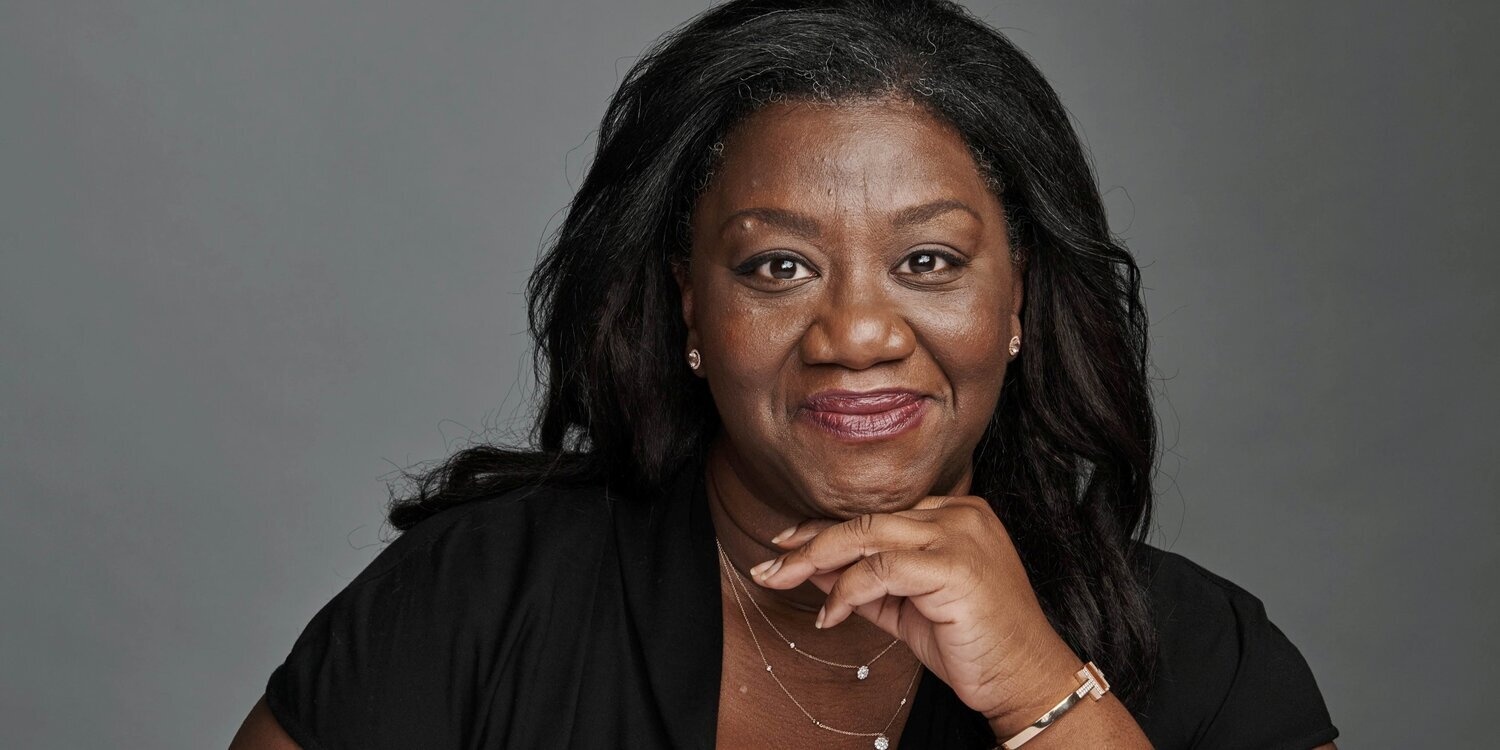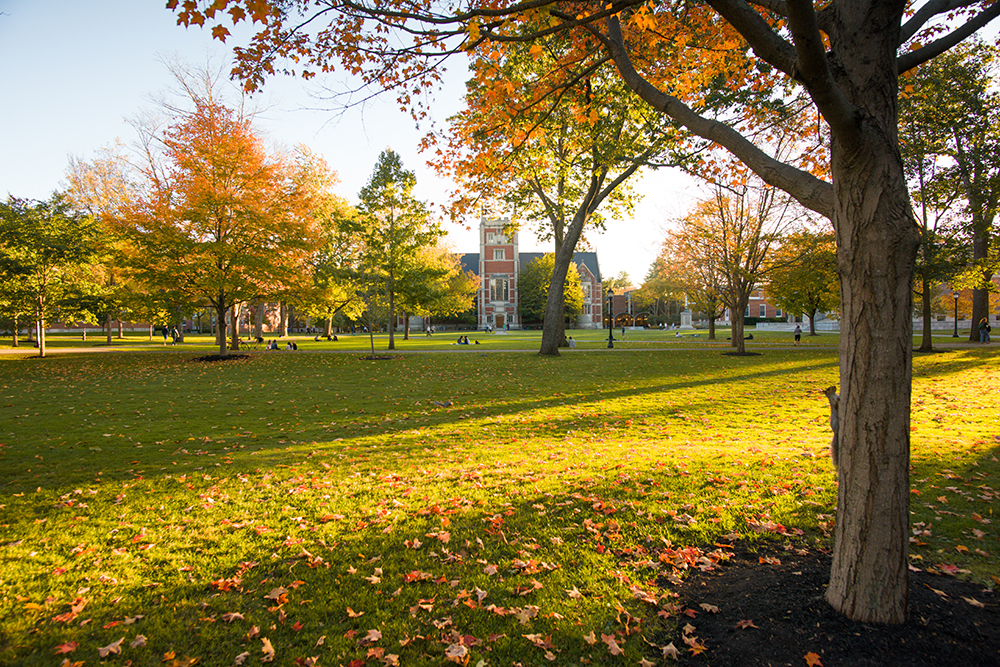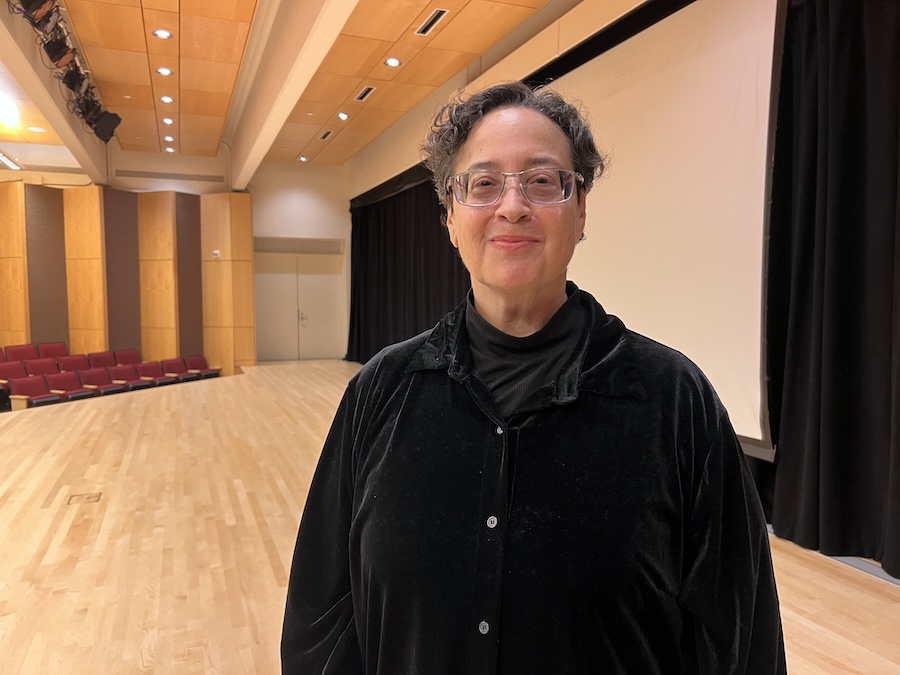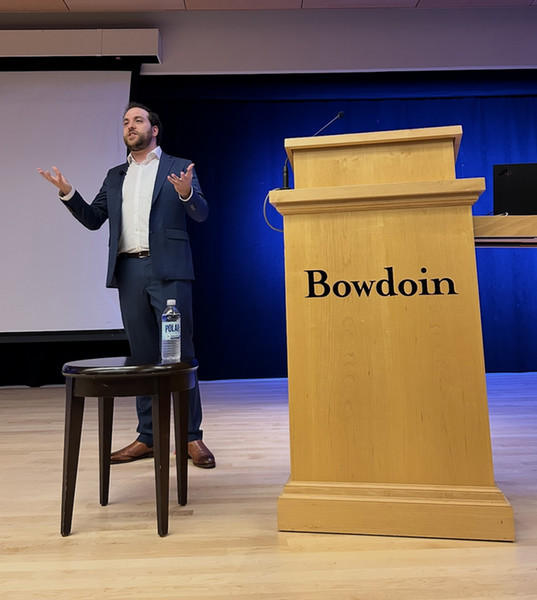Founder of "The Black List" Discusses His Impact on the Film Industry
By Lily Echeverria ’26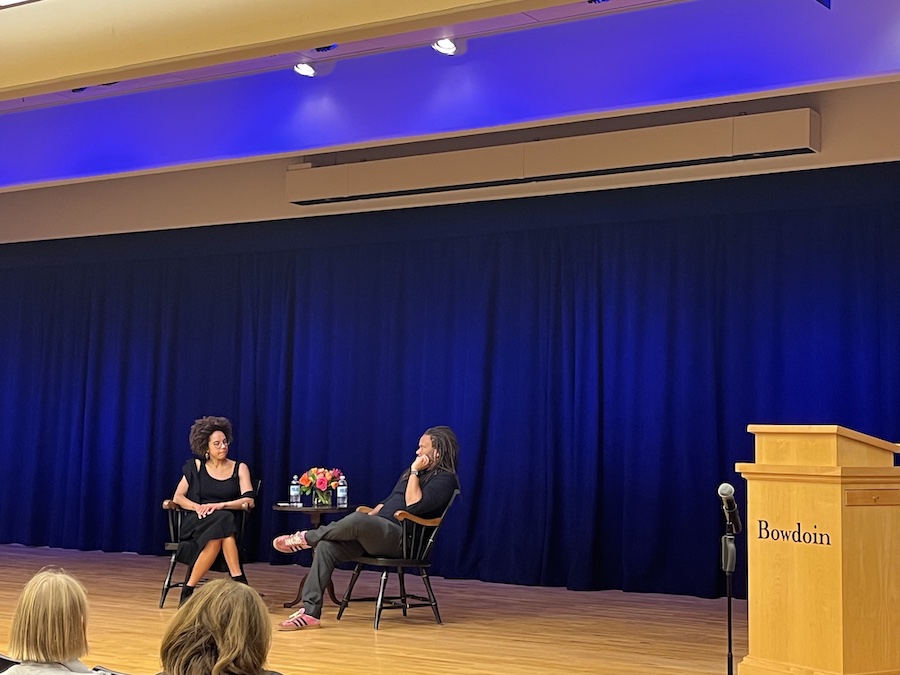
Leonard is the founder and CEO of The Black List, a website that showcases up-and-coming screenwriters. Along with his long list of Hollywood-related accolades, he has also made significant strides as an activist, including sparking an important study of racial inequity in the film industry.
The dialogue between the two took on a conversational tone—they have known one another since their freshman year at Harvard.
Their talk began with discussion of The Black List, which introduces industry insiders to new screenplays and screenwriters. The work inspired Leonard's 2018 TED Talk, “How I Accidentally Changed The Way Movies Get Made."
“I took a survey and asked all my peers to send me a list of their ten favorite unproduced screenplays,” he said.
He then compiled the list, creating a collection of scripts—many of which would eventually be turned into movies. He was working for Leonardo DiCaprio’s production company at the time.
The term "blacklist," he explained, “was a double reference. It was a tribute to the writers who lost their careers during the Hollywood blacklist of the McCarthy era, and to consciously reverse the notion that ‘Black’ was a negative signifier, because there was now a new blacklist that they wanted to be on,” he said. “And it sort of went viral in the industry in late 2005.”
“'Sort of went viral' is a great understatement," Johnson joked. “It went completely viral!” she said.
Leonard did not originally sign his name to his project, so the mystery list became alluring to many in the film and TV world. Even some executives interviewing him unknowingly mentioned it, but he did not feel he needed credit for it.
To Leonard, art goes far beyond what an audience sees on the surface. “I think all art in some form or another is a person’s attempt to wrestle with the reality of being human,” he said. “I think that movies are a particularly powerful form of art because they are shared so widely.”
Leonard also spoke about the importance of representation in art, referencing how it changes minds about what is possible. In the film industry, he was frequently told that “Black” movies would not make as much money as “white” movies. So he suggested that his former employer, the consulting firm McKinsey & Company, conduct a study of bias in Hollywood.
The company completed a yearlong study, "and what they found is that Hollywood is losing, as a result of anti-Black bias alone, $10 billion dollars a year,” Leonard said, from “movies that don’t get made, in under-investment in talent, and in under-marketing of movies that they have made."
Black films, the study revealed, received roughly 30 percent of studios' marketing budgets and got distributed in half as many countries outside of the US as other films. "And the crazy part is that even despite all of that on a return-on-investment basis, they made about 20 percent more dollar-for-dollar than 'white' films,” Leonard said.
He also pointed out that Black actors who start out in Hollywood receive one-third as many job offers as white actors.
Following the exchange between Johnson and Leonard, students and audience members asked questions, ranging from how to get into the industry to who Leonard would cast in different iterations of movies he’d like to make. He also spoke about recently meeting young filmmakers from Lagos, Nigeria.
“I was on Twitter one night and there was a Reuter’s video piece about five kids who were all making short films,” Leonard said. “I remember retweeting that piece and saying ‘Does anyone know how I can get in touch with these kids?’”
They eventually did connect, speaking on a Zoom call. It made Leonard crave finding more untapped talent and doing work to help youth around the world realize their filmmaking potential.
Bowdoin's Director of Institutional Inclusion and Diversity Programs Katy Stern spoke on the department’s decision to bring Leonard to the College, and what students could learn from his life experience.
“Often, diversity and inclusion work is seen as extra work; as something on the side,” she said. “I think what is really powerful about Franklin’s work is how he incorporated inclusion into the work of Hollywood film making, and at the same time incorporated it [diversity and inclusion] into our movies.”
Stern believes the event was a success, based on student responses and the energy in the room.
“It was really powerful hearing the questions that came up from the students. It was really exciting,” she said. “Seeing both what students were excited about and connected with, but also what they were looking for. And it was exciting hearing how he responded to each of the questions. He really shared such thoughtful answers.”
